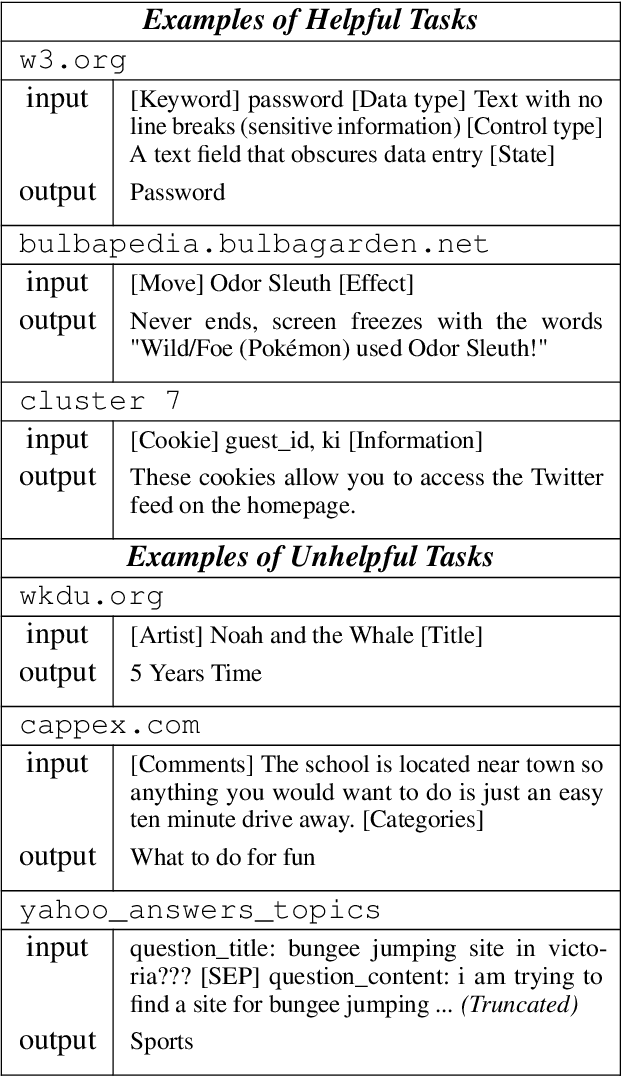Jonathan Jao
Few-shot Adaptation Works with UnpredicTable Data
Aug 08, 2022



Abstract:Prior work on language models (LMs) shows that training on a large number of diverse tasks improves few-shot learning (FSL) performance on new tasks. We take this to the extreme, automatically extracting 413,299 tasks from internet tables - orders of magnitude more than the next-largest public datasets. Finetuning on the resulting dataset leads to improved FSL performance on Natural Language Processing (NLP) tasks, but not proportionally to dataset scale. In fact, we find that narrow subsets of our dataset sometimes outperform more diverse datasets. For example, finetuning on software documentation from support.google.com raises FSL performance by a mean of +7.5% on 52 downstream tasks, which beats training on 40 human-curated NLP datasets (+6.7%). Finetuning on various narrow datasets leads to similar broad improvements across test tasks, suggesting that the gains are not from domain adaptation but adapting to FSL in general. We do not observe clear patterns between the datasets that lead to FSL gains, leaving open questions about why certain data helps with FSL.
 Add to Chrome
Add to Chrome Add to Firefox
Add to Firefox Add to Edge
Add to Edge